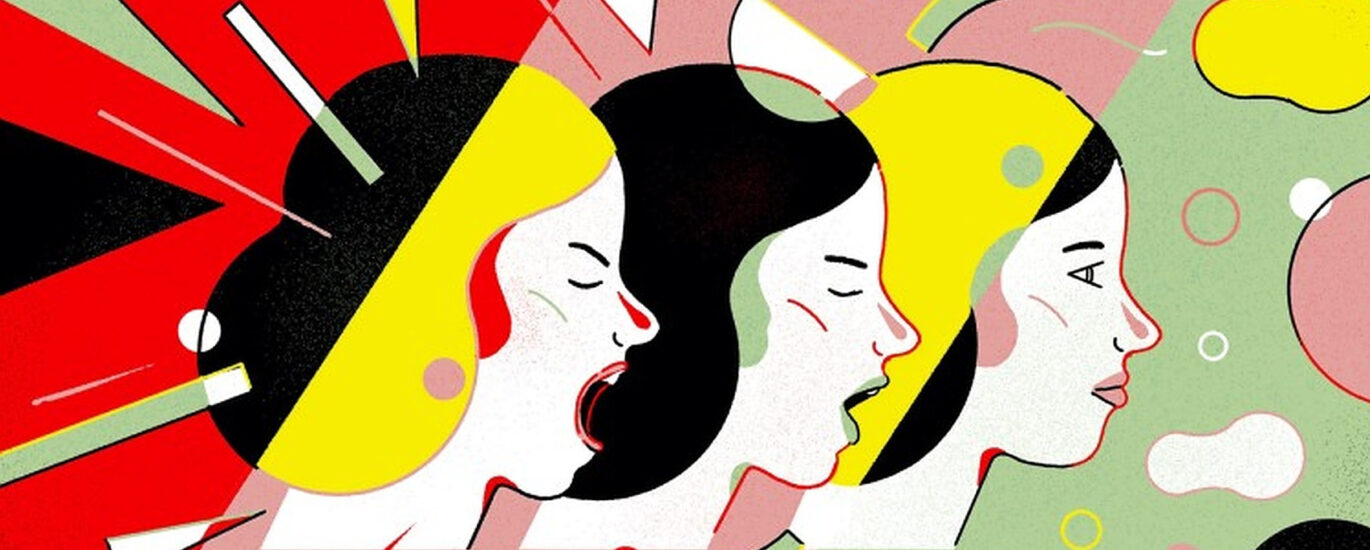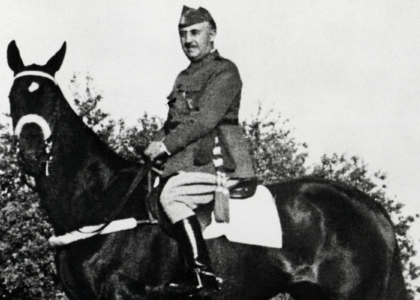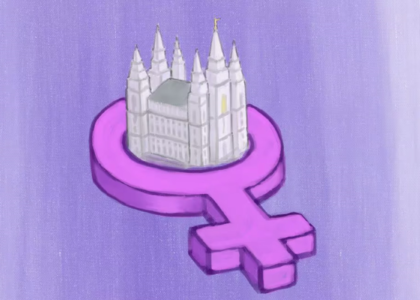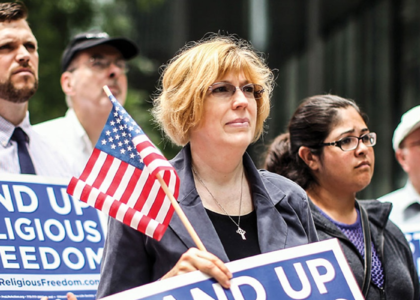“sisters, we have been in bondage for far too long.”
On today’s episode we’re joined by author and podcaster Cherie Burton, who talks to us about sacred rage, the anger of ancestresses, and how we can harness the indignant energy that patriarchy boils up inside us.
Our Guest
Cherie Burton

Cherie Burton is a mom of 6, author, holistic health business owner, Women Seeking Wholeness podcast host, and hobbyist divine feminine scholar. She has worked as a clinical counselor in the fields of mental health and addiction and now specializes in the science and spirituality of emotional healing and sensory integration; a “whole soul” approach. Cherie is a former Mrs. Utah and guides women in her Stand Speak Shine private coaching programs, retreats and online school. She travels internationally, empowering audiences with knowledge and tools to heal their trauma, find their soul callings, and embrace their wholeness.
Learn more at www.CherieBurton.com
Sacred Rage
Lately, it has felt like it is just time to speak more openly and boldly about the deep pain I have experienced as I’ve tried to wade through outer masculine structures—the “traditions of the fathers” if you will—to get to my own inner peace and power as a feminine being.
I’ve been fascinated with discovering the history—the “her-story”—that has been sidelined and put out of circulation from the mainstream, most notably in religious settings. The true story of the goddess, the priestess, the feminine consort of Christ, Mary Magdalene…all of this juicy history is making a comeback, and it moves me in ways almost nothing else does.
But what I really wanted to talk to you about in this episode is the term SACRED RAGE. Many of us are feeling a strong sense of anger and indignation at what has been repressed, suppressed, and oppressed throughout the ages with respect to the Feminine. Oftentimes we judge this anger. I am here to tell you that this anger is not only healthy, it is probably the main impetus needed to create the shift we all desire. Do not bypass this anger; it is well founded. It is 100 percent justified, and you have every right to feel it.
Many of us are feeling a strong sense of anger and indignation at what has been repressed, suppressed, and oppressed throughout the ages with respect to the Feminine. Oftentimes we judge this anger. I am here to tell you that this anger is not only healthy, it is probably the main impetus needed to create the shift we all desire.
Many of you may have heard of the term “righteous indignation.” It’s often used in reference to the biblical incident where Jesus flipped over the tables of those money changers in front of the temple. He boldly chastised these money changers—driving them out, saying, “Make not my Father’s house a house of merchandise.” This was a demonstration of SACRED RAGE. Righteous indignation and SACRED RAGE are terms that can be used interchangeably, in that they both portray bold human anger that confronts what is blatantly spiritually offensive. This is not just reactive anger; it is proactive anger. We have to do something with it. I am calling it SACRED RAGE for our purposes here because of the searing intensity that ensues when we awaken to how the sidelining of the Feminine has bumped up against our deepest core values.
Sometimes want to scream out, “Make not my Mother’s house a house of merchandise, either!” because this is what has been happening right in front of our eyes, right inside our churches.
I will share with you some of my pain and anguish—and I share it with the intention to heal and open up conversations for greater healing and understanding, not to perpetuate a free-for-all anger fest. My pain is real, and yours is, too. If you can identify with any part of my struggle, if it helps to validate your own pain and questioning—then I will have accomplished the true intention of this sharing.
When I interviewed Amy McPhie Allebest on my podcast show last year, she used a phrase that has stuck with me; in fact, it’s been reverberating in my head for months. She said, “We have been complicit in our own subordination.” In this context, she and I were discussing the risks of staying silent when we see blatant injustice and the marginalization of our sex, particularly with male church leaders. As I have reflected on this more and more—the risk of staying silent at church—I have come to realize that by not feeling safe to articulate what is bothering me, what doesn’t sit right with me—what feels off to me—I don’t just become complicit to the furtherance of unhealthy aspects of my culture, I become subordinate to the constraints of my own subconscious mind. When this happens to me, and to you—when we stay silent—we begin to feel trapped, confused, and powerless. It is akin to being in a mental prison of some kind. And sisters, we have been in bondage for far too long.

Sometimes want to scream out, “Make not my Mother’s house a house of merchandise, either!” because this is what has been happening right in front of our eyes, right inside our churches.
As I continue to make more and more problematic discoveries—when I hear or read about yet another aspect of history or theology that has denigrated and disempowered females—I find myself getting really, really, hopping mad. I’ll start praying and journaling, sometimes sobbing, sometimes clenching my fists to the heavens or pounding them on the earth. Sometimes I scream in a pillow, go outside for a vigorous walk, or put intense music on and dance like a crazy lady. Working the trauma-energy of this disillusionment and anger through my body helps…but after I’ve had my temper tantrum, I’m still left wanting. I just want to feel into the heart of what’s really happening. What are we to them? How are we women actually useful to the patriarchy? What do they want from us? Where is this going?
I know the patriarchy is not an overarching term for men, in general. Like Amy frequently says —and I will back her up here—we love men! I have three sons and three brothers and a great dad and uncles and a husband. I see patriarchy as a matrix of ideological constructs that have been replicating a virus of false power. When you become awake to how these ideologies have infiltrated literally everywhere, you can’t go back to sleep. It’s not uncommon to go through intense stages of grief and inner chaos as you begin to unplug from this matrix, from these old dogmas and philosophies that have subjugated women for millennia. You recognize how you have personally been affected, and you feel a myriad of hard, bitter emotions.
I’ve had certain loved ones ask me, “Why are you so angry?” And I want to say to them, “Gosh, how much time do you have?” It’s a loaded explanation. Isn’t it? My indignation typically makes no sense to anyone not immersed in unearthing actual historical facts.
I met Dr. Valerie Rein, who coined the phrase “Patriarchy Stress Disorder,” or PSD, a couple of years ago at a feminine leadership event. I later interviewed her on my podcast, and we discussed how releasing trauma—from the patriarchy wound, or the toxic male wound—is the new frontier in psychology and medicine. She shares, “Collective and intergenerational grief is gripping the world.” This collective grief is showing up powerfully in the space of religiosity.

Women have inherited the socio-cultural—and even the epigenetic ancestral pattern—of staying silent, being nice, diffusing contention, and overall peacekeeping. Part of staying silent includes the habit of holding in anger. Most women are absolutely furious and have no way to safely express it. What is this costing us? My background is in psychology and my career has focused on the holistic mind/body approach to emotional homeostasis and nervous system regulation. Bottled up anger, rage, and unprocessed trauma produces states of internal combustion. Swallowing words and feelings creates energetic tension and quantum level blockages at the cellular level. Swallowing words and not expressing yourself with authenticity, over time, can produce a tight throat, constricted speech, a tense neck and even chronic sore throats or thyroid issues. Bypassing our anger affects our health on all levels: mentally, physically, emotionally, spiritually, and socially.
I was born and raised inside the construct of Mormonism, or the Church of Jesus Christ of Latter-day Saints. In it, I have privately wrestled to claim my own voice and identity as an empowered female. At church, I have often felt second. I once believed that because Eve came after Adam, and because there was much emphasis on the Fall of Man (which she instigated), females were fundamentally a second-seat creation. I once believed this not because Mormon theology was heavy-handed towards Eve, but because as a female, you are entrained to second-guess yourself, to outsource your personal power, to put yourself second out of socio-emotional necessity. You learn to put yourself second in this education, this career, this longing; this need; this question. In heavy patriarchal religious administration—in my experience inside Mormonism—women are given a secondary role, as auxiliary support to male governance. The priesthood is the understood first-seat figurehead, the final—and really, only—authority. Women and the mysterious Mother remain second-in-command, relegated to the less visible roles of silent supporters.
Most world religions have traditionally held strict gender roles, and my church of origin is no exception. Look, no one is disputing how beautiful religious practices and gatherings can be, but historically, religions have held horrific theology for women! Silencing, body shaming, violence, ownership, misogyny—choose your poison. Skewed perceptions of Eve and critical textual omissions were manipulated and controlled by early church fathers, dating back to early Roman rule. It’s quite an interesting paradox—the patriarchy injecting into the collective psyche that females are the root cause of the Fall from paradise and responsible for the downfall of humanity; when in fact, that’s exactly what the patriarchy themselves did to humanity by metaphorically casting the Feminine out of the “garden” of religious equality. The earth has been in a freefall because of this expulsion. From the first century, females were deemed completely unworthy to participate in leadership or pray openly, much less be a mouthpiece for the divine. For many centuries a woman’s status was just above that of a slave. This is still a reality in some parts of the world.
…as a female, you are entrained to second-guess yourself, to outsource your personal power, to put yourself second out of socio-emotional necessity. You learn to put yourself second in this education, this career, this longing; this need; this question.
I’m not saying this has entirely been my experience inside Mormonism—a skewed perception of Eve or an inability to assert leadership. Yet, I have experienced a very real second-in-command kind of positioning, as priesthood men have always had to preside over me. Men are granted premier access to God via hierarchical priesthood administration, and thus, are said to be divinely sanctioned to lead congregations, homes, and the rest of humanity.
Research and discoveries in the fields of paleontology, archaeology, and cultural anthropology make it clear: the arts, gifts, voice, power and ways of the Feminine were forced underground by patriarchal regimes. This was a gradual process, but once in place culturally, became a radical exclusion that continues on a global scale to this day. The evidence and the research are there—and there continue to be many frontiers to explore with the artifacts, documents, art, and textual findings that have come forward. It’s just that church officials aren’t really diving in to explore these facts and findings in the way that they deserve…and why? Because they centralize the Feminine.
It is not that women’s temples, texts, teachings, and access to power were merely “lost.” There was a violent, concerted effort to bury, burn, and otherwise destroy any evidence that they existed in the first place. At pivotal stages of the earth’s development, any texts, teachings, artifacts and talismans not denoting a dominant male presence were deemed heretical, paganistic, witchy, cultish, and apocryphal. Yet at one time, the priestess was a real, live, embodied healer and role model and entire cities were based around the worship of goddesses. Some of the questions that have propelled my explorations and research are:
- How has religion excised goddess worship and feminine cosmology?
- How have religious systems been complicit in the oppression and suppression of females?
- What discoveries have recently been unearthed that reflect a broader view of humanity, spirituality and feminine power?
- How did Mother Earth lose her ground?
Over the last couple of years, I’ve had the honor of getting to know a powerfully wise woman in her late seventies, Maureen Murdock, who is the author of the classic feminist book, The Heroine’s Journey: Woman’s Quest for Wholeness. I interviewed Maureen on my podcast the month that The Heroine’s Journey was celebrating the 30th anniversary of its release. Maureen has written, “When humankind forgot the sanctity of the earth and began to worship its gods in churches and temples instead of in groves and on hilltops, it lost the sacred ‘I-Thou’ relationship with nature. With this disregard for the sanctity of nature came the denial of the sanctity of the body… The sacredness of the female body, the recognition of sacredness in matter, was lost as people began to worship the father gods. The reverence and fertility once accorded a menstruating woman went underground along with the Goddess. In her absence, some women forgot the deep wisdom of their female body and the mysteries of feminine sexuality. Women know with their bodies.”
I have come to know what Maureen is talking about in powerful ways. Yes, we do “know” with our bodies. We can feel into the innermost recesses of our “gut brains”—our womb space—and the intelligent temples of our hearts to access knowledge, insights, intuitions, and sacred knowing. This is why embodiment—being present in your body, here and now—is such a complete gamechanger for women. When we are in our bodies, we are unstoppable. When we are fully present, grounded, aware and heart-centered, we access authentic spiritual, mental, and physical power. Using your voice then becomes natural and swallowing your anger isn’t an option.
Here’s where it’s gotten personal for me:
I was nine the first time I heard the word polygamy. I had been eavesdropping on a group of adults having a side conversation before church. It was a peculiar enough word to pique my curiosity. I later asked my Sunday School teacher what it meant.
What she then started saying seemed too strange to be real. One man, many wives. Prophets used to do it. Heavenly Father does it. Mormons believe in it. The full explanation is hazy now, but I remember with lightning-bolt precision how it struck in my body. It was as though someone hauled off and kicked me, square into the center of my midsection.
I wouldn’t know this until years later, but that quantum-level kick left a gaping hole in the middle of my being for decades. I don’t know what disturbed me more as a nine-year-old—the fact that it seemed like common knowledge and no big deal to my female teacher or that it seemed like common knowledge and no big deal to God and the leaders of the church.
I formed an innocent interpretation in an instant: that it takes a number of females to equal—or complete—the worth and power of one male. One dad, with lots of moms? One husband, with lots of wives? One Heavenly Father with lots of…Heavenly Mothers?
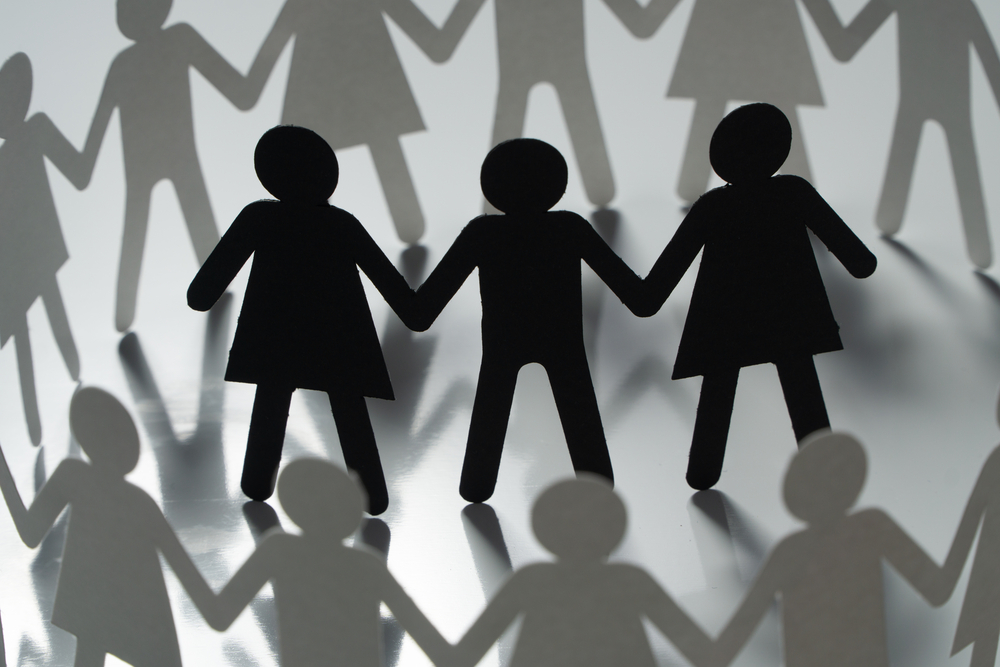
What she then started saying seemed too strange to be real. One man, many wives. Prophets used to do it. Heavenly Father does it. Mormons believe in it. The full explanation is hazy now, but I remember with lightning-bolt precision how it struck in my body. It was as though someone hauled off and kicked me, square into the center of my midsection.
The concept of heavenly parents is a unique doctrine that prevails in Mormonism; the belief that we lived as spirit children and were raised with perfect love in a glorious realm by exalted parents. To that point, I just assumed, because of my heteronormative culture, that my heavenly parents consisted of a Mother and a Father. Not one Father and a collection of Mothers.
How such an eternal doctrine impacts the developing psyche of a Latter-day Saint female, I have since come to learn, can be emotionally traumatizing. Maybe for some, that’s a strong assumption or inference or stretch. But for me it was a spiritual shock; a gut punch to the epicenter of my being. Mormon women are stuck in the afterlife, trying to navigate a patriarchal order wherein their husband can be “sealed” to multiple women and create children with them. Yet you, as a woman, can only be sealed to one man. And that man has eternal claim upon your children.
As a spiritually cruel concept and afterlife for Mormon women—and one that has created a lot of psychological angst for both genders.
At various times throughout my life, I would scramble to grasp the goal and end-game of the practice of polygamy. Joseph Smith, the founding prophet of Mormonism, had dozens of wives, some in their teens, others who were married to other men. Brigham Young, the faith’s second prophet, had more than fifty wives. In Doctrine and Covenants, Section 132 of the Latter-day Saint canonized scripture, it introduces polygamy as an eternal principle; a celestial law called The New and Everlasting Covenant. This is a hidden doctrine, and one not openly discussed in Sunday meetings or from any pulpit, but it’s definitely still there. I never could ascertain if it was a stain on Mormon history or a holy-pure principle. As a youngster, I settled for the latter because prophets speak for God and therefore can’t be wrong.
I decided that if I became spiritual enough and “right enough” with Heavenly Father, someday He’d give me a personal assurance about polygamy I could live with. Someday I would feel peaceful about my eternal destiny as a sister-wife, and hence, peaceful with Doctrine and Covenants 132 in the here and now. Someday my body would feel peaceful about it.
…it was a spiritual shock; a gut punch to the epicenter of my being. Mormon women are stuck in the afterlife, trying to navigate a patriarchal order wherein their husband can be “sealed” to multiple women and create children with them. Yet you, as a woman, can only be sealed to one man.
The “Don’t worry, you won’t ‘have’ to practice it in eternity if you don’t want to” and “It’s not required of everyone” and “God’s ways are not our ways” were pseudo-assurances that only compounded my disorientation and guilt. Disorientation, because I didn’t know how to place it with the church’s emphasis on chastity, fidelity and monogamy, and guilt, because those women who are super evolved, spiritually-intelligent, perfectly obedient and pure-in-heart apparently are not bothered by it, now or in the afterlife. These women will be so advanced and mature and self-sacrificing as exalted goddess wives that they will willingly share their god-husband with other exalted women in the afterlife. Forever. And they’ll be grateful to do so because they’ll be the elite few who truly grasped the power of it and were worthy enough to live up to the requirements. It will be a divine privilege.
It was all too crazy for me to try and climb into or fully understand, and I felt severely lacking in faith in my inability to accept it, so I shelved it somewhere in the recesses of my mind-body. I stuffed it away, and in the process, felt a lingering diminishment in my spiritual worth as a female, and more painfully, a diminishment in my ability to maintain strong enough faith. Yet, there were too many other beautiful, eternal promises to explore; too many other wonderful aspects to my faith to have doubts about this singular, seemingly inconceivable doctrine. Therefore, I figured it was obviously my personal hang-up.
I will just say that at various times in my life I have been in absolute agony and turmoil over the harmful practice of polygamy. I never understood SACRED RAGE until health problems surfaced that practically forced me into confronting how wrestling with these issues was affecting my body. I have focused my career on understanding emotional and mental health, teaching for years that 90% of our behavior is driven by the subconscious. I had to come to terms with the furiousness and grief and the deep sadness I had been stuffing down and spiritually bypassing in order to stay nice, calm, and faithful. I am a seventh-generation Mormon. I began to feel, in very real ways, the tremendous anguish and fiery anger of my ancestresses who were forced into this practice. They didn’t have a choice or a voice. They didn’t have the power to express their anger; to speak up, say no, write their own rules for their families or design their own lives. I’ve recognized that women have been stifling and suppressing their anger for thousands of years and, when we dampen and diffuse our anger, we become sick and depressed.
I had to come to terms with the furiousness and grief and the deep sadness I had been stuffing down and spiritually bypassing in order to stay nice, calm, and faithful.
After all of the arguing and explaining and hashing out of doctrinal points ran their course, I realized that no one ever asked me how I really felt about polygamy. And there’s something wrong with that. I finally asked myself, what do I keep being asked to sacrifice, by not speaking my anguish aloud, by not getting real with others about this? By not acknowledging this pain that I was feeling in the innermost recesses of my soul and by not speaking up about the deepest feminine wound in the psyche of my religion of origin—Mormonism—I was in acute denial and I could see that others were as well. To me, it became the elephant in the room! I could no longer hold it in; looking the other way was no longer tenable. I had to explore my true feelings and what this had done to my body. This, from age nine, was a literal quantum wound in the epicenter of my being.
Clinging to religious doctrines, policies and practices that just do not feel right—that feel to me to be debasing, even demoralizing—is no longer tenable. I have been compelled to accept many divisive religious ideologies because I have been entrained from my girlhood to follow my leaders—to obey without question what comes from “the top” because it’s coming straight from God. Men in religious power are exonerated from providing context and transparency. They don’t have to tell us why they espouse, reveal or change things, they just tell us it’s from God. This is the patriarchal matrix Mormon women live in. Male church leaders assuage our doubts—placate us—smile and give us messages that paradoxically inspire hope in us while complicating and befuddling our own internal knowing. This kind of benevolence offers a false sense of safety. We are distracted from pursuing our own understanding and honoring our own innate wisdom, which can keep us stuck, vulnerable, infantilized, and helpless. This state of dependency is the opposite of spiritual sovereignty.

I once pointedly asked myself, “Why would the patriarchy not want people to become sovereigns?” I began to realize that I may be perceived as an unaccompanied minor if I went outside the prescribed set of doctrines and religious borders. Yet, to me, this is free agency and a healthy self-prescribed permission slip to explore and believe what feels aligned and leave behind what does not. In truth, our conformity means nothing at the level of the soul. To outer structures, conformity is everything. The chronic deference to authority has cost us our soul sovereignty and free agency. It keeps us dependent on exteriors and ultimately costs us our feminine and masculine empowerment.
I have come to learn deep inside that the body does not—well, actually cannot—lie. The Feminine wisdom in each of us—the yin energy, the intuitive force within—speaks to us through sensations in the physical body. The body is a living receptacle of truth…From the moment my nine-year-old self heard about polygamy, she simply knew. Her body and her soul just knew.
Today, I simply cannot be part of the propagation of the Mormon doctrine of polygamy, The New and Everlasting Covenant. It decentralizes women in the afterlife and that’s just not okay. My future higher self and my ancient soul—my divine masculine and divine feminine within—by birthright, cannot integrate healthily in a system that has this doctrine on the table.
Jungian psychologist, feminist writer, and one of my heroines, the late Marion Woodman wrote: “The feminine leads us to the sharp edge of experience. There we have to feel our feelings in our bodies; there our secrets become visible in the darkened, unvisited corners of our psyches. Claiming the unswept corners of our psyches leads us to compassion for ourselves and for others.”
I will no longer be living my life feeling second and silenced and insignificant and misunderstood at the level of my fundamental core identity. I am weary of second-guessing my worth, my station, and my authentic mission. I want to commune with the God and Goddess of my understanding without abandon, without a go-between or intercessor or priest or leader, just as the feminine mystics throughout the ages did. I am at a stage in my life where it is a psychological and spiritual imperative that I express the authenticity of my sovereign soul. And I know I am not alone in this longing and knowing. Many men and women are feeling this right now.
I recognize that not every woman inside Mormonism or inside traditional religion will experience my same disorientation and pain around women’s issues. Some Mormon women, for instance, may listen to me and go, “Why does this even matter? I’m peaceful, I’m fulfilled; I have all the truths before me; I can claim my husband’s priesthood. I have a claim on that power. So, what’s the big deal?” But I ask these women, What about what’s inside of YOU? Do you feel empowered to lay claim on that?
I will no longer be living my life feeling second and silenced and insignificant and misunderstood at the level of my fundamental core identity. I am weary of second-guessing my worth, my station, and my authentic mission.
In 1979, Sonia Johnson was excommunicated by the LDS, or Mormon, Church for openly opposing the church’s stance on the Equal Rights Amendment. I was ten years old, but I remember her excommunication well, and the controversy that ensued as a result. Her public response, in part, to this church disciplinary action was, “Patriarchy can exist so long as women are afraid.”
I was one who had chronic sore throats, thyroid issues, shaky speech patterns and tightening in my throat area for years until I realized that I was swallowing my emotions and my truth. I was afraid to use my voice, to express my innermost longings, questions, and SACRED RAGE.
As I have been allowing myself to get more and more curious about my own internal anger, it is driving me to the center of what I value. The reason SACRED RAGE is so effective as an agent for awakening and change is because it is so powerfully felt. It gets us back in touch with our bodies and moves us as an energy source. Everyone who’s ever been a pioneering leader or changemaker has had to first become angry about what they want to change or revolutionize.
Words are so powerful! Use your voice with me, right now! Repeat after me: “I am powerful. It is wonderful to be alive. I am my own. I release all restrictions and I am free to be me. I am free to feel what I feel.” Of course, there are a million different empowerment phrases you can give voice to. Just speak up and speak OUT and let yourself feel what you need to feel without judgment and without abandon.
We are living in a time where women must extricate themselves from the establishments around them in order to define their own relevance, their own brand of leadership, their own voices, missions, paths, purpose, and callings. It doesn’t mean they can’t do this within the establishments! It means they must find it in spite of the establishments.
Brené Brown said, “You can choose courage or you can choose comfort. You cannot have both.” This is the time of the feminine rising, in men and in women. This is the day; our day. It is our time to be open, honest and radically compassionate to the plight of humanity and how we have been subjugated by patriarchal regimes. It is time to express our SACRED RAGE! We must form a strong commitment to stay true to ourselves, our own wisdom, and our own power of choice.
When we are in our bodies,
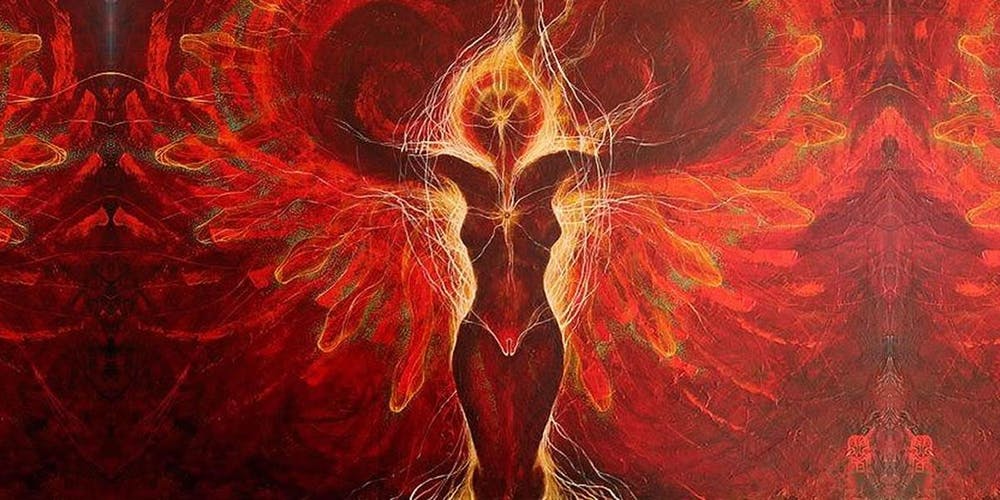
we are unstoppable.
Listen to the Episode
&
Share your Comments with us below!

